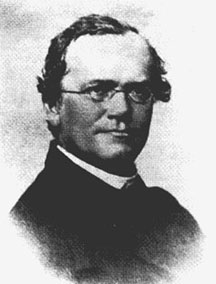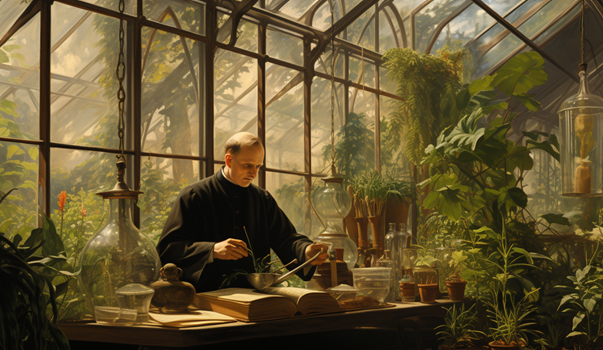Gregor Mendel's Contributions to the Field of Genetics
Gregor Mendel, an Austrian scientist and Augustinian friar, is often hailed as the father of modern genetics due to his groundbreaking work with pea plants in the mid-19th century. His contributions laid the foundation for our understanding of heredity and the laws governing inheritance. Here are Mendel's key contributions:

1. Experiments with Pea Plants: Mendel meticulously conducted experiments with pea plants (Pisum sativum) in the monastery garden, focusing on easily observable traits like seed color, pea shape, flower color, and plant height. Pea plants were advantageous for his experiments due to their distinct and easily recognizable characteristics.
2. Principles of Inheritance: Mendel formulated three key principles based on his experiments:
-
Principle of Segregation: He observed that each parent contributes one of two possible alleles for a given trait to their offspring. These alleles segregate during gamete formation, ensuring that each gamete receives only one allele for a particular trait.
-
Principle of Independent Assortment: Mendel found that the inheritance of one trait is independent of the inheritance of another trait. The alleles for different traits assort independently during gamete formation, leading to various combinations in the offspring.
-
Principle of Dominance: Mendel discovered that some alleles are dominant and mask the expression of recessive alleles in heterozygous individuals. Only when an individual inherits two recessive alleles does the recessive trait appear.
3. Quantitative Analysis: Mendel's meticulous documentation and quantitative analysis of his experiments were groundbreaking. He recorded and analyzed the ratios of different traits in the offspring, establishing the ratio of dominant to recessive traits as 3:1 in the first generation (F1) and 1:2:1 in the second generation (F2).
4. Publication of Mendel's Laws: Mendel's work, initially published in 1866 in "Experiments on Plant Hybridization," went largely unnoticed at the time. It was only rediscovered and appreciated in the early 20th century, becoming the cornerstone of modern genetics.
Mendel's contributions revolutionized the understanding of heredity, paving the way for the field of genetics. His laws laid the groundwork for the modern understanding of how traits are inherited and passed down from one generation to the next, forming the basis of the principles of genetic inheritance.

